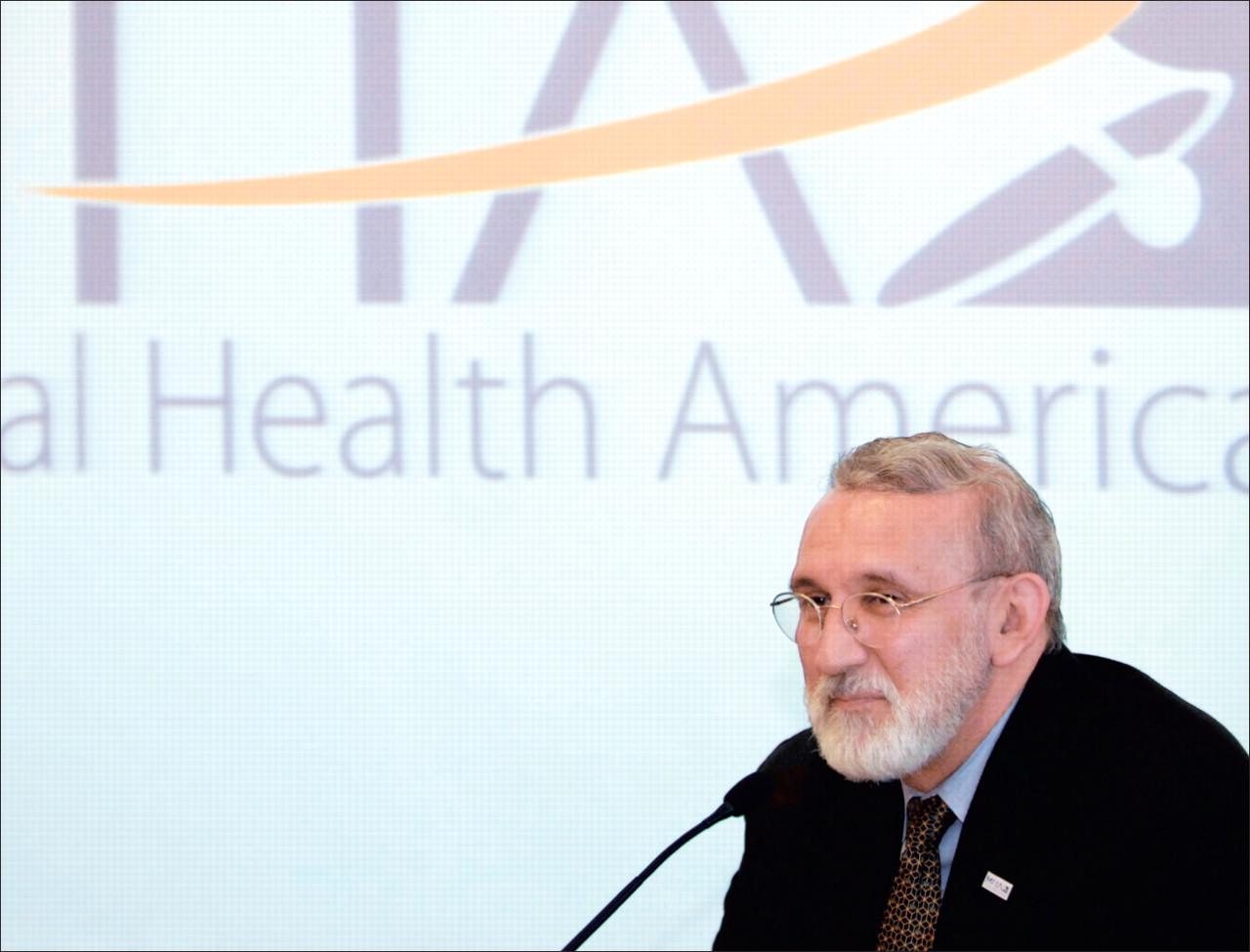In keeping with APA President Pedro Ruiz, M.D.'s, vow to strengthen ties between APA and other key mental health advocacy groups, the president and CEO of Mental Health America (MHA) and the chair of its board accepted invitations to address the APA Board.
President and CEO David Shern, Ph.D., who was dean of the Florida Mental Health Institute before taking on the MHA leadership post, explained that the genesis of his advocacy role was the helplessness and frustration he experienced when he was unable to get a young family member with bipolar disorder the help that he needed despite Shern's access to and knowledge of so many resources. One of his goals as MHA president is to foster“ outrage” among the American populace about the sorry state of the U.S. mental health system and the obstacles it puts in the way of people getting the care they need.
Sergio Aguilar-Gaxiola, M.D., Ph.D., chair of the MHA board, explained the organization's recent name change. The organization had been known for 98 years as the National Mental Health Association, and its leaders decided that the traditional moniker had led many people to confuse it with other organizations and that it was time for a new name that reflects the importance of mental health in “the overall well-being of all Americans and the country as a whole.”
Aguilar-Gaxiola added that the new name is easier to pronounce and remember. The renaming was accompanied by introduction of a new tag line:“ Bringing wellness home.”
Election Scrutinized
Citing the lowest vote total in many years and the increasingly difficult task of finding candidates to run against well-known Board members, the APA Board of Trustees voted at its March meeting to have the Elections Committee develop recommendations for reforming the APA election process.
The move followed extensive discussion of a proposal to allow uncontested elections for president-elect, though this option would apply only in cases in which the Nominating Committee failed in a concerted attempt to identify a qualified candidate to run against a clear favorite for the post. It would also continue to allow petition candidates to run for president-elect.
The uncontested-election option was introduced by immediate past APA President Steven Sharfstein, M.D., who, as chair of the Nominating Committee this year, contacted 43 potential candidates to run for president-elect against APA Vice President Nada Stotland, M.D.
Though acknowledging the problem that Sharfstein's proposal addressed, Board members expressed little support for the unopposed-candidate option. They chose instead to have the Elections Committee, which is chaired by Maria Lymberis, M.D., suggest potential fixes for the president-elect dilemma.
The Board also instructed the committee to discuss strategies that could lead to a reversal of the downward voter-participation trend at APA. Part of this charge is to discuss whether election guidelines need to be modified.
Other Actions
In other actions the Board voted to establish two new components. One is a task force charged with developing a statement of the principles involved in level-of-care criteria and ways to disseminate such a statement to other professional organizations. These criteria, the proposal stated, “could be used as a yardstick for evaluating level-of-care criteria by intermediaries (both public and private)..., could be consulted by third parties, and could serve as the expert opinion of organized psychiatry.”
The Board also established the Corresponding Committee on Graduate Medical Education (GME) to address multiple changes anticipated in the GME field over the next few years, including the way in which the American Board of Psychiatry and Neurology will certify residency graduates. The committee would report to the Council on Medical Education and Lifelong Learning, which pointed out that such a committee would be able to develop or review materials for use in psychiatric training, offer expertise in curriculum development, and serve as an APA liaison to medical school psychiatry programs.
On the increasingly important issue of pay-for-performance plans, the Board affirmed that APA will continue participating in the AMA consortium on this issue “to ensure that performance measures impacting psychiatric patients are developed by those with clinical expertise. .and have the potential to actually improve overall quality of care.” Trustees forwarded to the Assembly a related proposal to give APA backing to pay-for-performance principles developed by the AMA.
In addition, the Board voted to approve a policy that APA will no longer endorse conferences, programs, or meetings of outside organizations.▪


